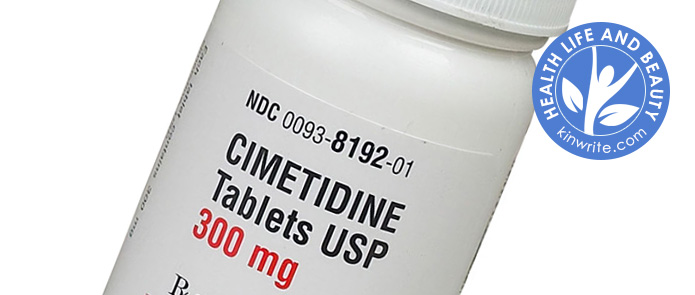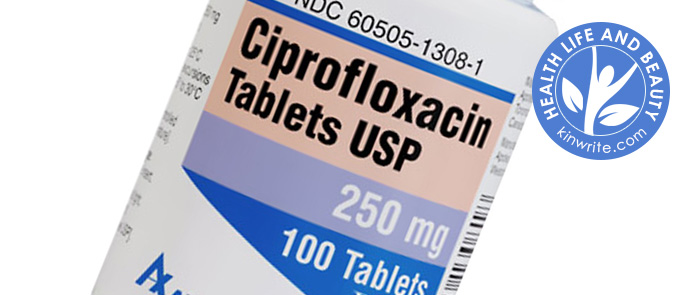Quinolone antibiotics and Cimetidine
Abstract/Summary
Cimetidine reduces the clearance of pefloxacin from the body, ranitidine reduces the absorption of enoxacin but neither cimetidine nor ranitidine appear to interact with cipro.
Clinical evidence, mechanism, importance and management
Neither cimetidine nor ranitidine affect the pharmacokrnetics of cipro12-5 but a study of the concurrent use of cimetidine and pefloxacin showed that the AUC was increased about 40% (from 49 to 69 /ig/h/ml”1), the half-life increased from 10.3 to 15.3 h and the clearance was reduced from 151 to 110 ml/mm. The clinical importance of this is uncertain but increased toxicity is a possibility. In contrast 50 mg ranitidine given intravenously 2 h before a single oral dose of enoxacin was found to have reduced the absorption by 26-40% which seemed to be related to change in gastric pH caused by the ranitidine. A reduced therapeutic response seems likely. Concurrent use should be monitored. More study is needed.

Quinolone antibiotic Ciprofloxacin (Cipro)
Ciprofloxacin was first introduced in the year 1987. It was listed as one of the most needed medications in the basic health system by the World Health Organisation (WHO). It is a generic medication and is inexpensive. It can be orally and intravenously administered. Even eye drops and ear drops are available of ciprofloxacin. The trade names of this drug are Ciloxan, Neofloxin, Cipro and many more.

Composition of Ciprofloxacin
Ciprofloxacin is found in the market as film-coated tablets of 250 mg and 500 mg. They are slightly yellow in colour. The inactive ingredients present in these tablets are as follows:
- Titanium dioxide
- Hypromellose
- Polyethylene glycol
- Magnesium stearate
- Silicon dioxide
- Crospovidone
- Silicon dioxide
- Microcrystalline cellulose
- Cornstarch
The oral suspensions contain the following:
- Povidone
- Methacrylic acid copolymer
- Magnesium stearate
- Microcapsules-ciprofloxacin
- Polysorbate 20
- Hypromellose
- Sucrose
- Lecithin
- Water
- Strawberry flavour
Uses of Ciprofloxacin
This medication is used for the treatment of a numerous bacterial infections. They include joint and bone infections, a type of infectious diarrhoea, skin infections, urinary tract infections, typhoid fever, respiratory tract infections, intra abdominal infections and many others. Ciprofloxacin belongs to the group of drugs known as quinolone antibiotics. Viral infections cannot be cured using ciprofloxacin. The overuse and misuse should be avoided to the utmost.
Side-effects of Ciprofloxacin
Using this medication can result in the occurrence of different types of side-effects. Some of these side-effects are mentioned below:
- Diarrhoea
- Black or bloody, tarry stools
- Tingling, prickling, itching, numbness, crawling, or burning feelings
- Changes observed while urinating
- Chest pain and discomfort
- Fever or chills
- Chest heaviness or tightness
- Confusion
- Unsteadiness or clumsiness
- Spitting or coughing blood
- Hearing unexplained noises inside the ears
- Irregular, racing, pounding, or fast pulse or heartbeat
- Hearing loss
- Welts or hives
- Light-coloured stools
- Joint stiffness
- Vomiting and nausea
- Muscle stiffness or pain
- Hive-like inflammation on the eyelids, face, tongue, lips, legs, feet, hands, or sex organs
- Nightmares
- Hands being num
- Seizures
- Skin rash
- Discomfort or pain in the neck, back, jaw, or arms
- Red painful lumps under the skin
- Redness of the arms, neck, face, and upper chest (occasionally)
- Shakiness in the hands, arms, feet, or legs
- Yellow skin or eyes
- Swelling of the feet, lower legs, or face
- Painful and swollen and tender lymph glands in the armpit, groin, or neck
- White patched on the tongue or mouth
- Sour or acid stomach
- Bone pain
Contraindications of Ciprofloxacin
Conditions under which ciprofloxacin is prohibited among patients are:
- Allergy to quinolones
- Pseudotumor Cerebri
- Lung transplant
- Slow heartbeat
- Kidney transplant
- Clostridium Difficile Bacteria Related Colitis
- Tendon rupture
- High pressure inside the skull
- Heart transplant
- Seizures
Ciprofloxacin and pregnancy
Animal studies have shown potential harm to the foetus at the time of pregnancy. However, there haven’t been adequate well-controlled experiments on humans, pregnant women must not be take ciprofloxacin.
--------------------------------------------------------------------------------------------Related Posts:
HONG KONG (Reuters) - Indigo naturalis, a dark blue plant used in traditional Chinese medicine, appears to be effective in treating psoriasis, a study in Taiwan has found. Psoriasis is a chronic skin disease for which no cure is known, though some therapies bring about a remission. It causes red scaly patches, or plaques, which take
Full Post: Indigo plant may treat chronic skin disease
--------------------------------------------------------------------------------------------
NEW YORK (Reuters Health) - The results of a study suggest that compression devices can produce significant improvements in patients with restless legs syndrome, a movement disorder that causes uncomfortable sensations in the legs that worsen when a person is inactive, such as during sleep. Drug therapy for restless legs syndrome (RLS) may be ineffective or
Full Post: Compression devices calm restless legs: study
--------------------------------------------------------------------------------------------
CHICAGO (Reuters) - Children in the United States increasingly are developing serious head and neck infections with a drug-resistant type of “superbug” bacteria called MRSA, U.S. researchers said on Monday. They said rates of methicillin-resistant Staphylococcus aureus, or MRSA, are rising in children, and called on doctors to be more judicious in prescribing antibiotics. “There is a
Full Post: Serious infections rising in U.S. children: study
--------------------------------------------------------------------------------------------
In the daily life, a man has to face different kinds of problems. Some of them are related to his family matters and some are related to his office work. Well, such kinds of problems are easy to handle because one can handle them through conversation. On the other hand, some problems are related to
Full Post: Prevent bacterial infections by using Doxycycline
--------------------------------------------------------------------------------------------
A topical medicine, Differin is used to treat acne. The drug also helps to rejuvenate the skin. How to use Differin? Always use Differin as advised by the physician. There is no need to use more of Differin as it will not give faster results. It can also lead to many side effects. The drug should only
Full Post: Topical medicine Differin